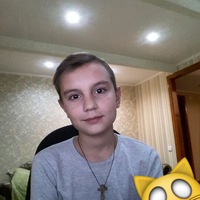
Put the verb into the more suitable form, present continuous or present simple. 1. I'm going (go)
to the theatre this evening. 2. Does the film begin (the film/begin) at 3.30 or 4.30? 3. We --- (have) a party next Saturday. Would you like to come? 4. The art exhibition --- (open) on 3 May and --- (finish) on 15 July. 5. I --- (not/go) out this evening. I --- (stay) at home. 6. '--- (you/do) anything tomorrow morning?' 'No, I'm free. Why?' 7. We --- (go) to a concert tonight. It --- (begin) at 7.30. 8. You are on the train to London and you ask another passenger: Excuse me. What time --- (this train/get) to London? 9. You are talking to Ann: Ann, I --- (go) to town. --- (you/come) with me? 10. Sue --- (come) to see us tomorrow. She --- (travel) by train and her train --- (arrive) at 10.15. I --- (meet) her at the station. 11. I --- (not/use) the car this evening, so you can have it. 12. You and a friend are watching television. You say: I'm bored with this programme. When --- (it/finish)? 0
0
 0
0
Ответы на вопрос
 Внимание! Ответы на вопросы дают живые люди. Они могут содержать ошибочную информацию, заблуждения, а также ответы могут быть сгенерированы нейросетями. Будьте внимательны. Если вы уверены, что ответ неверный, нажмите кнопку "Пожаловаться" под ответом.
Внимание! Ответы на вопросы дают живые люди. Они могут содержать ошибочную информацию, заблуждения, а также ответы могут быть сгенерированы нейросетями. Будьте внимательны. Если вы уверены, что ответ неверный, нажмите кнопку "Пожаловаться" под ответом.

 0
0
 0
0

1. I'm going (go) to the theatre this evening. 2. Does the film begin (the film/begin) at 3.30 or 4.30? 3. We are having (have) a party next Saturday. Would you like to come? 4. The art exhibition opens (open) on 3 May and finishes (finish) on 15 July. 5. I am not going (not/go) out this evening. I am staying (stay) at home. 6. 'Are you doing (you/do) anything tomorrow morning?' 'No, I'm free. Why?' 7. We are going (go) to a concert tonight. It begins (begin) at 7.30. 8. You are on the train to London and you ask another passenger: Excuse me. What time does this train get (this train/get) to London? 9. You are talking to Ann: Ann, I am going (go) to town. Are you coming (you/come) with me? 10. Sue is coming (come) to see us tomorrow. She is traveling (travel) by train and her train arrives (arrive) at 10.15. I am going to meet (meet) her at the station. 11. I am not using (not/use) the car this evening, so you can have it. 12. You and a friend are watching television. You say: I'm bored with this programme. When does it finish (it/finish)?
Explanation:
The present continuous tense (also known as the present progressive tense) is used to talk about actions that are happening at the moment of speaking or around the current period of time. It is formed using the present tense of the verb "to be" (am 0
0
 0
0
Топ вопросов за вчера в категории Английский язык
Последние заданные вопросы в категории Английский язык
-
Математика
-
Литература
-
Алгебра
-
Русский язык
-
Геометрия
-
Английский язык
-
Химия
-
Физика
-
Биология
-
Другие предметы
-
История
-
Обществознание
-
Окружающий мир
-
География
-
Українська мова
-
Информатика
-
Українська література
-
Қазақ тiлi
-
Экономика
-
Музыка
-
Право
-
Беларуская мова
-
Французский язык
-
Немецкий язык
-
МХК
-
ОБЖ
-
Психология
-
Физкультура и спорт
-
Астрономия
-
Кыргыз тили
-
Оʻzbek tili



















